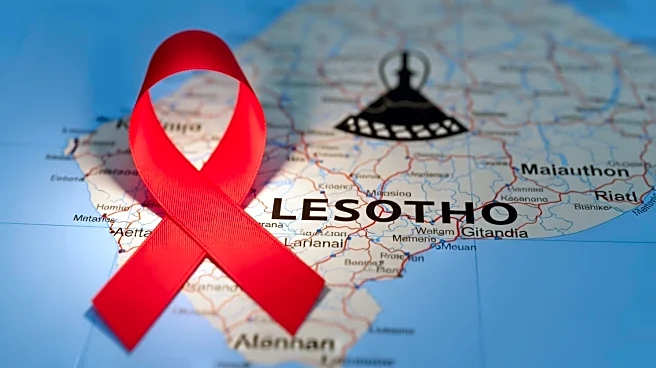What's Happening?
The small African nation of Lesotho is facing significant challenges following the U.S. decision to cut foreign aid, particularly affecting HIV-positive residents. Lesotho, which has one of the highest
HIV infection rates globally, had developed a robust health network with nearly $1 billion in U.S. aid. However, the aid cuts have led to the closure of clinics, loss of jobs, and disruption of treatment for many patients. Although some U.S.-funded programs have been temporarily reinstated, the situation remains precarious, with health workers and experts expressing concern over the long-term impact on public health.
Why It's Important?
The aid cuts have profound implications for Lesotho's public health system, which relied heavily on U.S. support to combat HIV. The disruption of key programs could lead to increased transmission rates and higher mortality, reversing years of progress. The situation highlights the vulnerability of countries dependent on foreign aid and underscores the need for sustainable, autonomous health systems. The broader impact extends to global health initiatives, as similar challenges are faced by other countries affected by the U.S. aid cuts.
What's Next?
Negotiations between the U.S. and Lesotho are underway to establish a multiyear funding agreement, but the process is expected to take months. Meanwhile, health workers are attempting to maintain services through informal networks, but the lack of resources and support poses significant challenges. The temporary reinstatement of some programs offers a glimmer of hope, but the long-term sustainability of Lesotho's health system remains uncertain.
Beyond the Headlines
The aid cuts have sparked a debate on the ethics of foreign aid dependency and the responsibility of wealthier nations to support global health initiatives. The situation in Lesotho serves as a wake-up call for the need to develop self-sufficient health systems that are not reliant on external funding. It also raises questions about the effectiveness of aid distribution and the potential consequences of abrupt policy changes.











